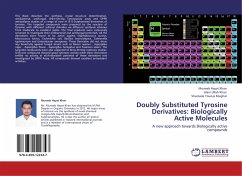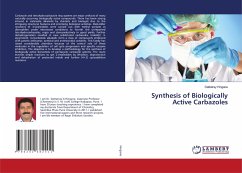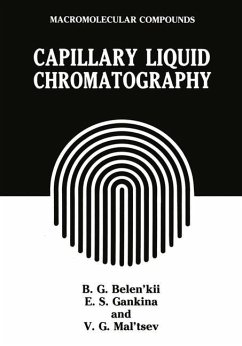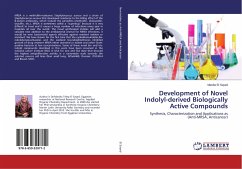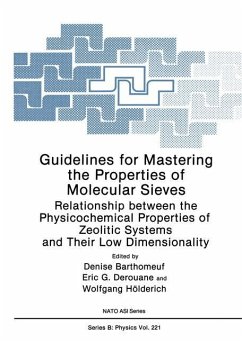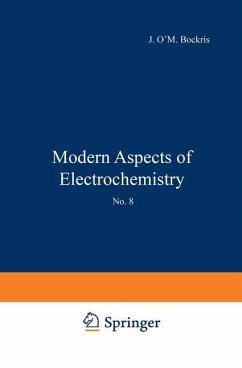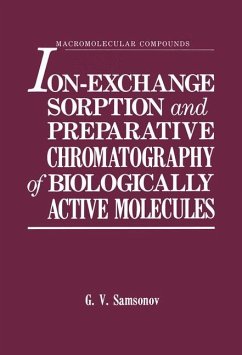
Ion-Exchange Sorption and Preparative Chromatography of Biologically Active Molecules

PAYBACK Punkte
20 °P sammeln!
This book deals with the physico-chemical principles underlying ion exchange sorption and chromatog~aphy. It does not cover in any detail the experimental and instrumental aspects of practical separations. The author has developed the subject starting from the synthesis and structure of the ion exchangers employed, through the thermodynamics of sorption selectivity and the equilibrium dynamics of ion sorption, to the kinetics and dynamics of non-equilibrium ion-exchange systems. Throughout this treatment the additional factors arising from the exchange of complex organic ions, as opposed to si...
This book deals with the physico-chemical principles underlying ion exchange sorption and chromatog~aphy. It does not cover in any detail the experimental and instrumental aspects of practical separations. The author has developed the subject starting from the synthesis and structure of the ion exchangers employed, through the thermodynamics of sorption selectivity and the equilibrium dynamics of ion sorption, to the kinetics and dynamics of non-equilibrium ion-exchange systems. Throughout this treatment the additional factors arising from the exchange of complex organic ions, as opposed to simple mineral ones, have been interwoven. The author has stressed the application in the separation of organic ions with biological activity, many of which are synthesized in biotechnological processes, and in view of this he uses the expression "physico-chemical biotechnology." In practice, however, his in-depth treatment is applicable to any charged organic species with multifunction ality and/or high molecular weight, and is therefore by no means restricted to biologically active materials, and certainly not to those molecules from a biotechnological source. Bearing this in mind, the text has a much wider value than the title may convey.





